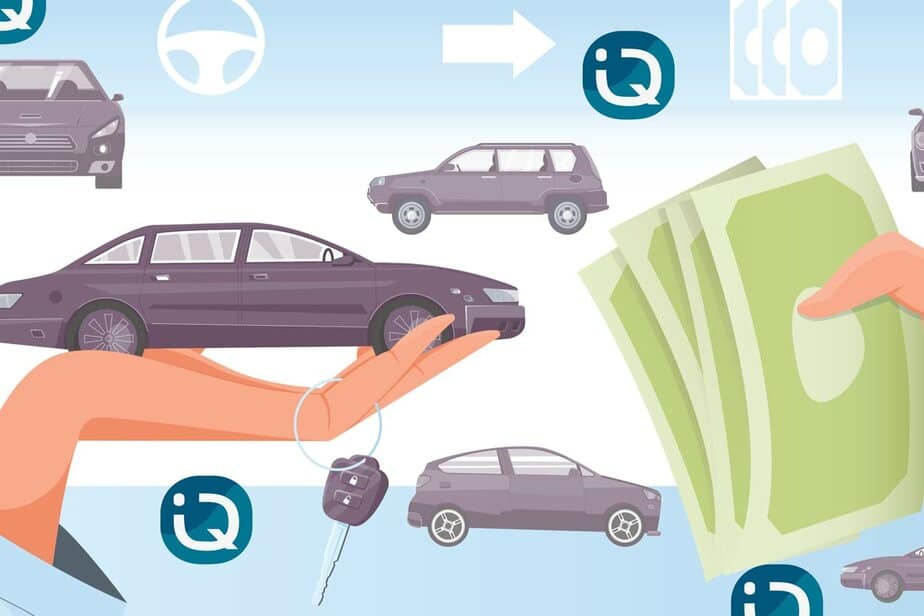How to Get a Car Insurance Refund, Let’s Get That Money Back in Your Pocket

How to Get a Refund on Your Car Insurance
So, you’ve moved to a new city, have a shorter commute, or sold your old car. Life is full of changes, and they can alter various aspects of your life… including your auto insurance coverage needs.
You may also need to cancel or switch policies if you’re getting rid of a vehicle or even reduce your coverage if you’re driving fewer miles a year.
If you decide to cancel before the end of your agreed term, your insurance company may owe you a car insurance refund. As long as you’ve prepaid your premium, you can get a refund on unused car insurance, which can be a nice financial boost to spend on other things.
Whether you can actually receive a car insurance premium refund, however, depends on several factors. So, it helps to understand the ins and outs of how car insurance reimbursements work.
Read on because we’ve got all the details you need to put that money back in your wallet!
Reasons for Cancelling Your Auto Policy
There several reasons why you might want to ask for a car insurance policy refund. Here are some of the most common ways policy holders are eligible.
You Cancel Your Policy
Do you get a refund when you cancel your car insurance? More often than not, the answer is… yes.
If you’ve paid your premium in advance, cancelling before the end of the term is the most common reason for receiving a car insurance refund on your policy. In fact, many states require carriers to issue car insurance refunds when policies are cancelled. You just need to contact your insurer to request the refund and be patient.
Timing Is Everything
Most insurers allow you to cancel your policy at any time, but exactly when you cancel and how much you’ve already paid in will determine the amount of your refund. Here are a few scenarios to keep in mind:
- Premium deposits – When you take out an insurance policy, your insurer may require you to make a deposit on a portion of your premium. If you cancel your policy after a few weeks, your car insurance provider will provide a partial refund to pay for any unearned premiums. So while you won’t receive a car insurance down payment refund per se, you won’t lose the money since it was applied to your auto insurance premium anyway.
- Opting in for auto renewal – You may be wondering “can I get a car insurance refund if I cancel after my policy automatically renews?” If your car insurance is set for auto renewal, you should be able to get a refund, but you may have to pay a fee if you cancel after more than two weeks have passed.
- Keeep it inside the grace period – When your policy is almost up for renewal, you’ll need to take action quickly if you’re ready to cancel. Your insurer will usually give you a grace period of about 20 days after your policy takes effect to give you time to either pay or cancel. But if you do neither during that window, your insurer can drop you for non-payment, and that could make it more difficult for you to get insurance in the future.
What About After an Accident?
There are a few different way you may receive a car insurance refund after an accident:
- Repair reimbursement – First, if you file a claim seeking a car damage refund, your insurance provider will reimburse you for all approved repair costs, minus your deductible.
- Deductible refund – If you were not at fault in the accident, your insurer will give you an excess refund by giving you your deductible back. Keep in mind that if you were at fault, your rates could go up.
- Rental reimbursement – If you purchased a car insurance policy with rental reimbursement coverage, your insurer will refund you for any rental car expenses you paid while your car was receiving repairs.
- After a write-off – If the cost to repair your car is more than the vehicle’s value, your insurer may classify your car totaled, or “written off”. Depending on the extent of your damages, you may receive a car write-off insurance refund. So instead of paying to repair your car, your insurer would refund you for the car’s value after a write off, minus your deductible if you were at fault.
What if I Sell My Car?
The sale of a car means you will need to cancel your policy. That may make you eligible for a car insurance refund when the car is sold. But it’s important to consider what you’ll do with your car insurance refund when selling the vehicle.
If you’re planning to sell the car and buy a new one, you’re still going to need coverage. So the car insurance refund you receive after selling your car will probably need to go toward your new policy, which you should activate before you cancel the old one to avoid a coverage lapse.
But let’s say you’ve just moved to a walkable community with mass transit, and you’re not planning to replace your car after you sell it. In that case, you might be able to pocket your car insurance refund after selling the car.
You’ve Paid Off Your Car
Guaranteed Auto Protection, or GAP insurance covers the difference between the vehicle’s actual value and the balance of the car loan. Since people usually pay their GAP premium in advance, they may be due for a sizeable GAP insurance refund when the car is paid off. If you pay off a five-year car loan in three years, for example, you would be able to receive the equivalent of two years of premiums from your car’s GAP insurance refund.
Death of a Loved One
People don’t often think about what happens to car insurance when someone dies until they’ve lost a loved one. If the policyholder’s spouse or the person inheriting the vehicle has no plans to use it, they will need to cancel the policy and find out if they are entitled to a car insurance refund after their loved one’s death. This may apply in situations involving certain impairing disabilities as well.
Auto Insurance Refunds for COVID-19 Reasons
COVID-19 has forced more people to stay at home and off the roads. Since fewer cars make for fewer accidents, some insurers have been offering a partial car insurance refund due to the pandemic. Many auto insurers started providing rebates, discounts and reimbursements to policyholders after the March 2020 coronavirus lockdowns began. Not all insurers volunteer this information, so you may need to reach out to find out if any refund money or discounts are available.
If you can’t afford to pay your premium, it’s worth checking to see if your state is among those requiring insurers to give policyholders extra time to pay for their coverage. California, Massachusetts and Michigan are among the states that have ordered carriers to provide auto insurance refunds.
If you haven’t been driving as much — or at all — due to COVID, you may be able to get your rates even lower by dropping any coverage you no longer need, suspending your policy or shopping around with other providers.
If you need help finding a new insurance policy, our licensed agent can answer any questions you may have.
Frequently Asked Questions on Getting Car Insurance Refunds
When can I get a refund on my car insurance?
Here’s a quick rundown of when you can and can’t get a refund.
When you CAN get a refund:
- When you cancel your policy and you’ve paid in advance.
- When you make changes to your policy, such as removing a driver or vehicle.
- When you remove coverage from a car on your policy.
- When you move to an area with lower rates.
When you CAN’T get a refund:
- When you don’t pay your premiums.
- When your insurer cancels your policy because you have had too many accidents or too much risk.
- When you violate the terms of your policy.
- When you cancel without paying after your policy’s grace period has ended.
Is my refund taxable?
Unless you use your car for business purposes, you still have to pay tax on your car insurance. That means your car insurance reimbursement is taxable, too.
How can I get a refund from my car insurance?
There are a few steps to follow if you think you qualify for a refund.
- Obtain a new policy – If you need coverage, make sure have your new policy in place before you close out the old one.
- Cancel your policy – Reach out to your provider to ask to end the policy.
- Submit a written request – Putting your request in writing is the best way how to claim your car insurance refund. Submit a letter to your provider to explain why you qualify for a car insurance refund.
How much money will I receive?
After you cancel your policy or sell your vehicle, your car insurance refund will usually consist of a pro-rated amount based on how much time you have left on the premium. When you’re determining your car insurance refund calculation, remember that some insurers charge a cancellation fee and may deduct that from the refund.
How long does a car insurance refund take?
It usually takes about two to four weeks to receive a reimbursement check from your insurer so be patient!
Many drivers are unsure on how refunds actually work when it comes to their car insurance policy. The details are usually buried in the fine print, but don’t feel like you have to quote verbatum to get what you deserve. All you need to do is follow the advice we’ve listed above.
